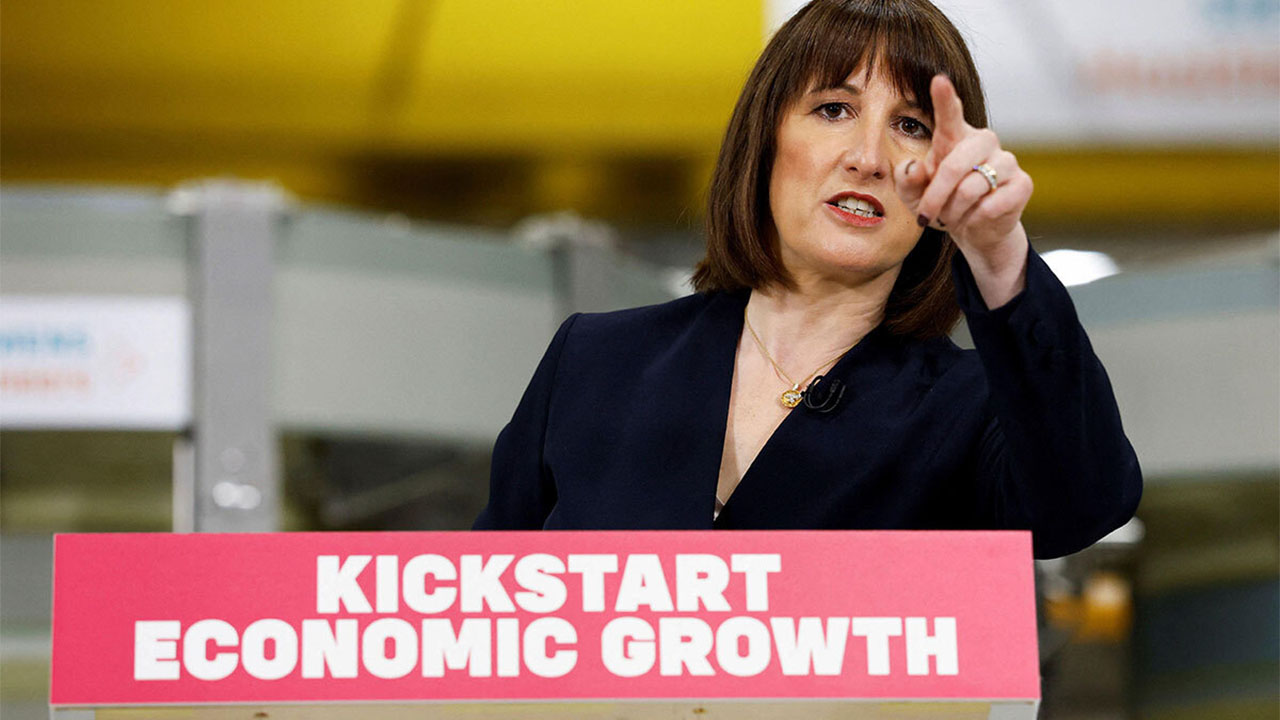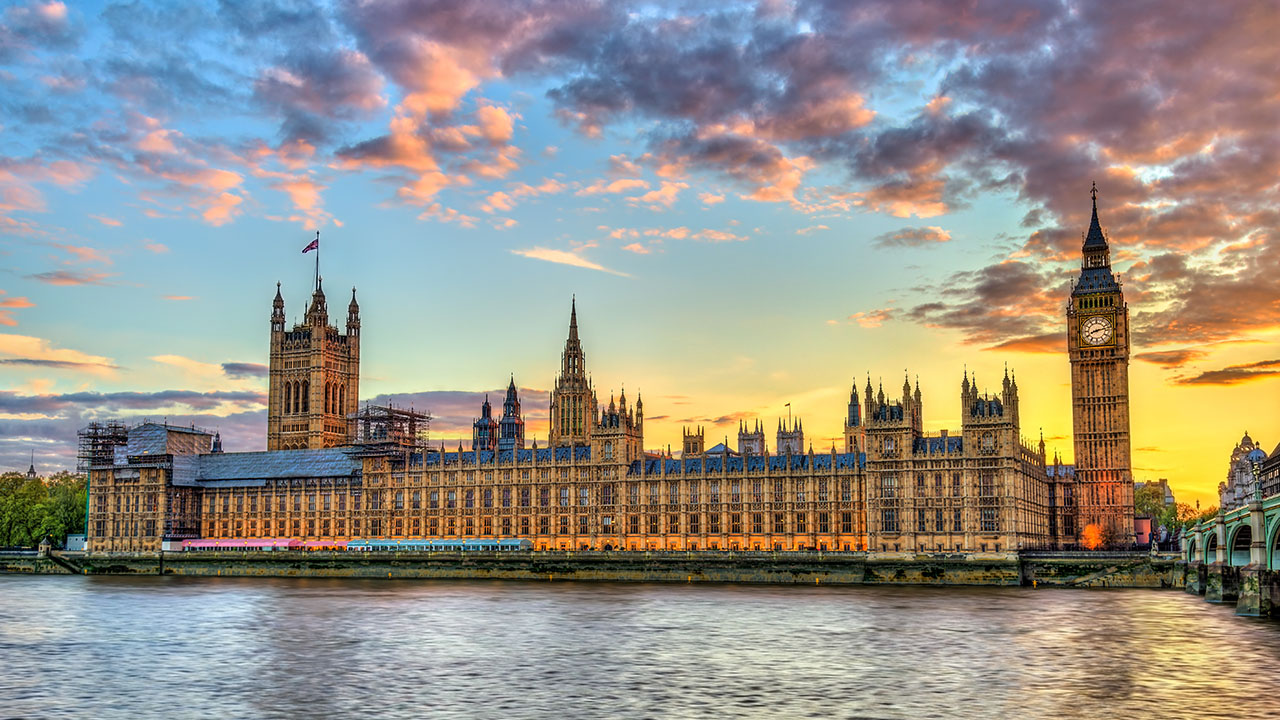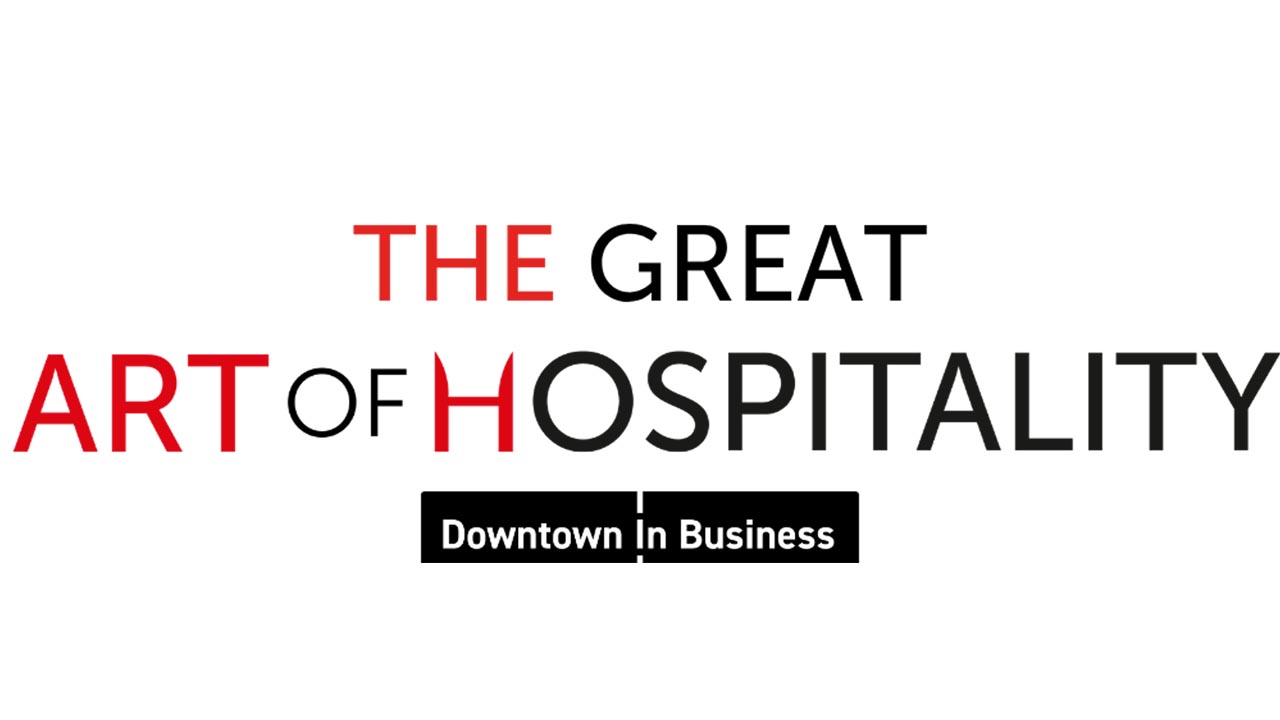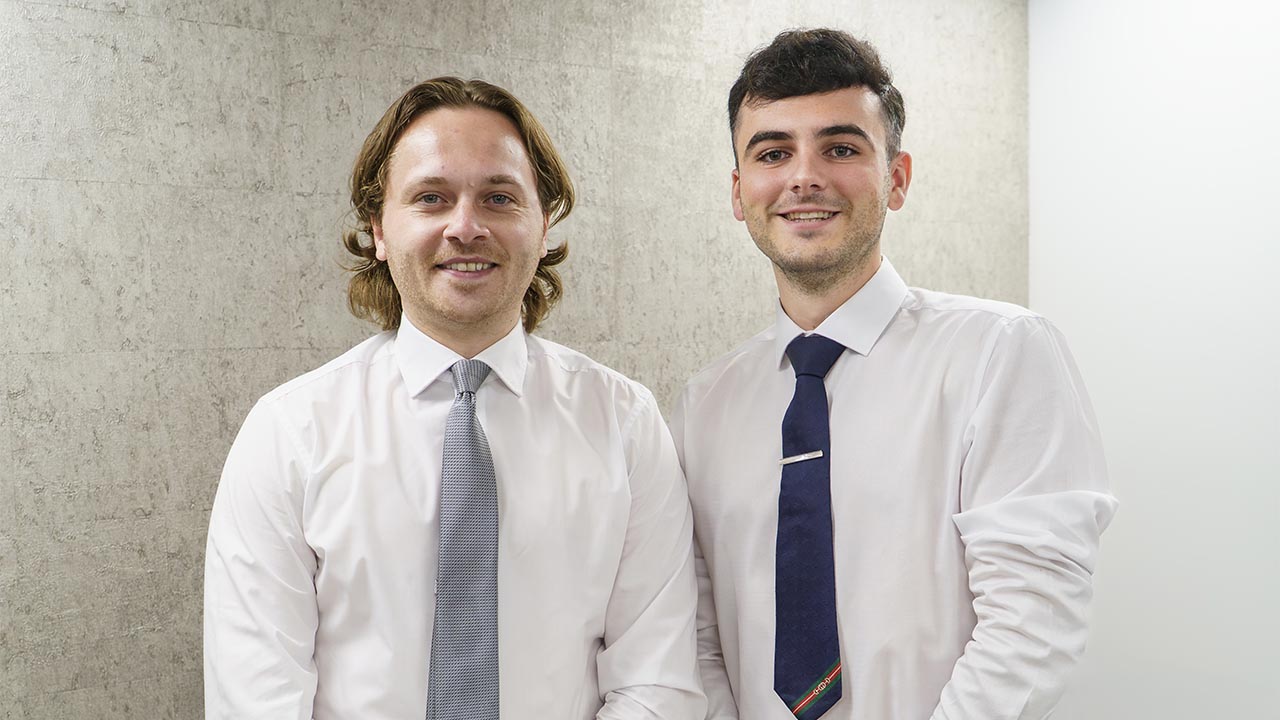The worldwide spread of Coronavirus is a rapidly evolving situation and one which Liverpool is working with partners in the NHS and other public services to develop contingencies for locally.
Local Resilience Forum (LRF) partners meet regularly to discuss the potential risks and impacts and are well-prepared to respond to any potential incident.
They are working closely with partners to share and communicate accurate information in a timely manner.
This latest guide contains new information about the launch of a good neighbour and volunteer scheme, Lifestyle leisure centre closures, help for renters and access to free school meal vouchers for parents/guardians of children who are off school.
It is correct as of 19 March 2020.
What is coronavirus?
Coronavirus is a type of virus. As a group, coronaviruses are common across the world but this is a new strain which has developed called COVID-19.
What are the signs and symptoms?
The symptoms are a high temperature and a new, continuous cough but can also include sneezing and shortage of breath.
In some cases, this may progress to a severe pneumonia causing shortness of breath and breathing difficulties. Generally, coronavirus can cause more severe symptoms in people with weakened immune systems, older people, and those with long term conditions like diabetes, cancer and chronic lung disease.
How does this new coronavirus spread – I’m concerned I could catch it?
Because it’s a new illness, we do not know exactly how it spreads from person to person, but similar viruses spread by cough droplets or sneeze droplets.
How long any respiratory virus survives will depend on a number of factors; for example:
- what surface the virus is on (eg: hard or soft)
- whether it is exposed to sunlight
- differences in temperature and humidity
- exposure to cleaning products
Under most circumstances, the amount of infectious virus on any contaminated surfaces is likely to have decreased significantly by 24 hours, and even more so by 48 hours.
Can the virus survive on cargo that has arrived from an affected area?
There is currently no evidence to suggest that the virus can be transmitted from post or packages.
What can I do to reduce my risk of catching coronavirus?
The best way to protect ourselves from infections like coronavirus is to wash our hands frequently for 20 seconds with soap and water or use a sanitiser gel, as well as always carrying tissues and using them to catch coughs and sneezes, then putting the tissue in a bin.
There are things you can do to help stop germs like coronavirus spreading:
- Always carry tissues with you and use them to catch your cough or sneeze. Then bin the tissue, and wash your hands, or use a sanitiser gel.
- Wash your hands often with soap and water, especially after using public transport. Use a sanitiser gel if soap and water are not available.
- Avoid touching your eyes, nose and mouth with unwashed hands.
- Avoid close contact with people who are unwell.
If you are concerned that you are unwell or unsure about your symptoms, the NHS advice line is 111.
Should people wear face masks to protect themselves from infection?
We do not recommend face masks. Whilst they play a very important role in clinical settings, such as hospitals but there’s very little evidence of widespread benefit from their use outside of these clinical settings.
Facemasks must be worn correctly, changed frequently, removed properly and disposed of safely in order to be effective.
Coronavirus in our area
The Government has now moved us to the ‘delay’ phase in the ongoing coronavirus (COVID-19) outbreak. More information can be found here: https://www.gov.uk/government/publications/covid-19-stay-at-home-guidance
The main messages are:
- if you live alone and you have symptoms of coronavirus illness (COVID-19), however mild, stay at home for 7 daysfrom when your symptoms started. See ending isolation section for more information
- if you live with others and you are the first in the household to have symptoms of coronavirus, then you must stay at home for 7days, but all other household members who remain well must stay at home and not leave the house for 14 days. The 14-day period starts from the day when the first person in the house became ill
- for anyone else in the household who starts displaying symptoms, they need to stay at home for 7 days from when the symptoms appeared, regardless of what day they are on in the original 14-day isolation period. See ending isolationsection for more information
- it is likely that people living within a household will infect each other or be infected already. Staying at home for 14 days will greatly reduce the overall amount of infection the household could pass on to others in the community
- if you can, move any vulnerable individuals (such as the elderly and those with underlying health conditions) out of your home, to stay with friends or family for the duration of the home isolation period
- if you cannot move vulnerable people out of your home, stay away from them as much as possible
- if you have coronavirus symptoms:
- do notgo to a GP surgery, pharmacy or hospital
- you do not need to contact 111 to tell them you’re staying at home
- testing for coronavirus is not needed if you’re staying at home
- plan ahead and ask others for help to ensure that you can successfully stay at home and consider what can be done for vulnerable people in the household
- ask your employer, friends and family to help you to get the things you need to stay at home
- wash your hands regularly for 20 seconds, each time using soap and water, or use hand sanitiser
- if you feel you cannot cope with your symptoms at home, or your condition gets worse, or your symptoms do not get better after 7 days, then use the NHS 111 onlinecoronavirus service. If you do not have internet access, call NHS 111. For a medical emergency dial 999
For more information and advice about self-isolation see: https://www.gov.uk/government/publications/covid-19-stay-at-home-guidance
Social distancing
This guidance is for everyone. It advises on social distancing measures we should all be taking to reduce social interaction between people in order to reduce the transmission of coronavirus (COVID-19). It is intended for use in situations where people are living in their own homes, with or without additional support from friends, family and carers. If you live in a residential care setting – guidance is available here: https://www.gov.uk/government/publications/covid-19-residential-care-supported-living-and-home-care-guidance
We are advising those who are at increased risk of severe illness from coronavirus (COVID-19) to be particularly stringent in following social distancing measures.
This group includes those who are:
- aged 70 or older (regardless of medical conditions)
- under 70 with an underlying health condition listed below (ie anyone instructed to get a flu jab as an adult each year on medical grounds):
- chronic (long-term) respiratory diseases, such as asthma, chronic obstructive pulmonary disease (COPD), emphysema or bronchitis
- chronic heart disease, such as heart failure
- chronic kidney disease
- chronic liver disease, such as hepatitis
- chronic neurological conditions, such as Parkinson’s disease, motor neurone disease, multiple sclerosis (MS), a learning disability or cerebral palsy
- diabetes
- problems with your spleen – for example, sickle celldisease or if you have had your spleen removed
- a weakened immune system as the result of conditions such as HIV and AIDS, or medicines such as steroid tabletsor chemotherapy
- being seriously overweight (a BMI of 40 or above)
- those who are pregnant
Note: there are some clinical conditions which put people at even higher risk of severe illness from COVID-19. If you are in this category, next week the NHS in England will directly contact you with advice the more stringent measures you should take in order to keep yourself and others safe. For now, you should rigorously follow the social distancing advice in full, outlined below.
People falling into this group are those who may be at particular risk due to complex health problems such as:
- People who have received an organ transplant and remain on ongoing immunosuppression medication
- People with cancer who are undergoing active chemotherapy or radiotherapy
- People with cancers of the blood or bone marrow such as leukaemia who are at any stage of treatment
- People with severe chest conditions such as cystic fibrosis or severe asthma (requiring hospital admissions or courses of steroid tablets)
- People with severe diseases of body systems, such as severe kidney disease (dialysis)
What is social distancing?
Social distancing measures are steps you can take to reduce the social interaction between people.
This will help reduce the transmission of coronavirus (COVID-19).
They are:
- Avoid contact with someone who is displaying symptoms of coronavirus (COVID-19). These symptoms include high temperature and/or new and continuous cough;
- Avoid non-essential use of public transport, varying your travel times to avoid rush hour, when possible; 3.Work from home, where possible. Your employer should support you to do this. Please refer to employer guidancefor more information;
- Avoid large gatherings, and gatherings in smaller public spaces such as pubs, cinemas, restaurants, theatres, bars, clubs
- Avoid gatherings with friends and family. Keep in touch using remote technology such as phone, internet, and social media.
- Use telephone or online services to contact your GP or other essential services.
Everyone should be trying to follow these measures as much as is pragmatic.
For those who are over 70, have an underlying health condition or are pregnant, we strongly advise you to follow the above measures as much as you can, and to significantly limit your face-to-face interaction with friends and family if possible.
This advice is likely to be in place for some weeks.
How can I get assistance with foods and medicines if I am reducing my social contacts?
Ask family, friends and neighbours to support you and use online services. If this is not possible, then the public sector, business, charities, and the general public are gearing up to help those advised to stay at home. It is important to speak to others and ask them to help you to make arrangements for the delivery of food, medicines and essential services and supplies, and look after your physical and mental health and wellbeing.
If you receive support from health and social care organisations, for example if you have care provided for you through the local authority or health care system, this will continue as normal. Your health or social care provider will be asked to take additional precautions to make sure that you are protected. The advice for formal carers is included in the Home care provision.
What should you do if you have hospital and GP appointments during this period?
We advise everyone to access medical assistance remotely, wherever possible. However, if you have a scheduled hospital or other medical appointment during this period, talk to your GP or clinician to ensure you continue to receive the care you need and consider whether appointments can be postponed.
What is the advice for visitors including those who are providing care for you?
You should contact your regular social visitors such as friends and family to let them know that you are reducing social contacts and that they should not visit you during this time, unless they are providing essential care for you. Essential care includes things like help with washing, dressing, or preparing meals.
If you receive regular health or social care from an organisation, either through your local authority or paid for by yourself, inform your care providers that you are reducing social contacts and agree a plan for continuing your care.
If you receive essential care from friends or family members, speak to your carers about extra precautions they can take to keep you safe. You may find this guidance on Home care provision useful.
It is also a good idea to speak to your carers about what happens if one of them becomes unwell. If you need help with care but you’re not sure who to contact, or if you do not have family or friends who can help you, you can contact your local council who should be able to help you.
What is the advice if I live with a vulnerable person?
If you live in a house with a vulnerable person refer to our household guidance
How do you look after your mental wellbeing?
Understandably, you may find that social distancing can be boring or frustrating. You may find your mood and feelings are affected and you may feel low, worried or have problems sleeping and you might miss being outside with other people.
At times like these, it can be easy to fall into unhealthy patterns of behaviour which in turn can make you feel worse. There are simple things you can do that may help, to stay mentally and physically active during this time such as:
- Look for ideas of exercises you can do at home on the NHS website
- Spend time doing things you enjoy – this might include reading, cooking, other indoor hobbies or listening to/watching favourite radio or TV programmes
- Try to eat healthy, well-balanced meals, drink enough water, exercise regularly, and try to avoid smoking, alcohol and drugs
- Keep your windows open to let in fresh air, get some natural sunlight if you can, or get outside into the garden. You can also go for a walk outdoors if you stay more than 2 metres from others
Further information on looking after your mental health during this time is available.
What steps can you take to stay connected with family and friends during this time?
Draw on support you might have through your friends, family and other networks during this time.
Try to stay in touch with those around you over the phone, by post, or online. Let people know how you would like to stay in touch and build that into your routine. This is also important in looking after your mental wellbeing and you may find it helpful to talk to them about how you are feeling.
Remember it is OK to share your concerns with others you trust and in doing so you may end up providing support to them too. Or you can use a NHS recommended helpline.
What is the advice for informal carers?
If you are caring for someone who is vulnerable, there are some simple steps that you can take to protect them and to reduce their risk at the current time. Ensure you follow advice on good hygiene such as:
- Wash your hands on arrival and often, using soap and water for at least 20 seconds or use hand sanitiser.
- Cover your mouth and nose with a tissue or your sleeve (not your hands) when you cough or sneeze.
- Put used tissues in the bin immediately and wash your hands afterwards.
- Do not visit if you are unwell and make alternative arrangements for their care.
- Provide information on who they should call if they feel unwell, how to use NHS111 online coronavirus service and leave the number for NHS 111 prominently displayed.
- Find out about different sources of support that could be used and access further advice on creating a contingency plan is available from Carers UK
- Look after your own well-being and physical health during this time. Further information on this is available here
Overseas travel
The Foreign & Commonwealth Office (FCO) advises British people against all but essential travel worldwide due to unprecedented international border closures and other restrictions.
The Spanish government has confirmed that all hotels will close in Spain from Tuesday 24 March and the FCO is advising British travellers in Spain to contact their tour operator or airline as soon as possible, to arrange their return journey home before this date.
We will continue to update our Travel Advice pages with relevant information if you are currently abroad. Check our travel advice for your location regularly and sign-up to email alerts.
You must follow the advice of local authorities. Your safety and security is the responsibility of the local authority where you are.
If you wish to leave the country you are in, contact your airline or travel company and your insurance provider as soon as you are able, and keep up to date with the latest developments.
International travel may become more difficult. We only organise assisted departure in exceptional circumstances.
Quarantine while you are abroad
If the local authority where you are proposes to quarantine you for your own protection, you should follow their advice. When you are abroad, your safety and security is their responsibility.
If there are suspected cases of coronavirus where you are, you may need to remain in your hotel room or accommodation for 14 days, move to quarantine facilities, take tests for coronavirus and, if positive in some cases, be hospitalised abroad.
You should also contact your airline or travel company, and your insurance provider as soon as you
can. We only organise assisted departure in exceptional circumstances.
If your travel is essential
Prepare for your travel
If your travel is essential, follow our checklist before you travel:
- contact your airline, travel company, cruise line or other transport and accommodation providers to make sure you can still travel
- read the details of your travel insurance carefully, and check that you are covered, and contact your insurer if you are uncertain. You may need to consider a specialist policy
- make sure you can access money to cover emergencies and unexpected delays. Take more than one means of payment with you
- be prepared to follow the advice of local authorities abroad. Be ready to comply with local isolation or quarantine requirements, and to rely on the local health system
- make sure you have enough medication with you in case you are abroad longer than planned
- be prepared for logistical and financial disruption to your travel
- arrange extra support for family members, dependants or pets who may need care if you are abroad longer than planned
- check travel advice for your destination regularly and sign-up to email alerts
- visit this page regularly as it is constantly updated given the evolving situation overseas
If you are older, or if you have pre-existing medical conditions (such as asthma, diabetes, heart disease), you are more likely to become severely ill if you catch the virus. Check the NHS guidance before you travel.
Get travel insurance
If your travel is essential, make sure you have appropriate insurance for overseas travel, and purchase it as soon as you book your travel. You should check the detail of your travel insurance to see what it covers, and contact your insurance provider if you have any questions.
You may need to consider a specialist policy. It’s your responsibility to make sure you’re covered.
Read our guidance on purchasing insurance.
The Association of British Insurers (ABI) has published information on the travel insurance implications of coronavirus.
Entry restrictions
Many countries and territories have introduced screening measures (temperature checks, health/travel questions, quarantine) and entry restrictions at border crossings and transport hubs.
If you have recently been in a country affected by the virus you may need to be quarantined, or you may not be allowed to enter or travel through a third country. If you decide to travel, contact the local immigration authorities or the embassy, high commission or consulate of the country you’re travelling to.
Travel advice and consular support
Foreign & Commonwealth Office (FCO) travel advice
Foreign & Commonwealth Office travel advice is constantly under review, so that it reflects our latest assessment of risks to British people. Find out more about how our travel advice works.
Consular help
We publish all our Travel Advice on GOV.UK. Our consular officers cannot provide any additional information by phone. Read more about the consular support we provide.
International cruises
If you are planning to go on a cruise, be aware a COVID-19 outbreak on board is possible, and your travel may be disrupted.
If you are aged 70 and over, or if you have underlying health conditions, we advise you against cruise ship travel at this time. Find out more in our cruise ship travel guidance.
The Cruise Line International Association (CLIA) has adopted an enhanced member health policy which all CLIA ocean member cruise lines must follow. It includes guidance on who should be permitted to board cruise ships. If you are due to travel on an international cruise, contact your travel company for the latest information.
Schools
The Government has announced that all schools will close on Friday 20 March until further notice.
Liverpool City Council is working with schools to make sure this happens in a planned and safe manner.
More details will be provided when available about support available for the children of for key workers and the vulnerable before Monday.
The government is advising against all overseas education trips for children under 18 until further notice.
Children with symptoms of coronavirus infection, however mild and regardless of diagnosis, should stay at home for 7 days from when their symptoms started.
The latest advice for schools on what to do if they have a suspected case, or have people returning from an area affected by coronavirus, can be found here: https://www.gov.uk/government/publications/guidance-to-educational-settings-about-covid-19/guidance-to-educational-settings-about-covid-19
A Department for Education helpline to answer questions about coronavirus for staff, parents and young people is available:
- Phone: 0800 046 8687.
- Email: [email protected]
- Opening hours: 8am to 6pm (Monday to Friday)
Children on free school meals
Parents/guardians of pupils on free school meals will be entitled to collect a weekly £10 food voucher for their child whilst the school is closed during term time, which can be redeemed online or in store at ASDA.
To collect the voucher, people should visit their designated children’s centre from Monday 23 March (see list below).
If they are in self-isolation and cannot collect please call the centre and they will arrange for it to be posted out.
In the event of your local children’s centre being closed, please call 0151 233 3000 and they will re-direct you to your nearest local centre.
Parents/guardians will need to take a letter issued by their school and ID, and vouchers cannot be distributed to children and young people.
Anfield ward
Anfield Children’s Centre, Oakfield, L4 2QG, Tel: 233 4001
Belle Vale, Allerton and Hunts Cross & Mossley Hill Wards
Belle Vale & Hunts Cross & Mossley Hill Children’s Centre
Our Lady of Assumption site: Hedgefield Road, L25 2RW. Tel: 233 1705
Hunts Cross School Site: Kingsthorne Road, L25 0PJ. Tel: 233 3733
Dovedale School site: Dovedale Road. Tel: 233 6870
Clubmoor and Norris Green wards
Clubmoor & Ellergreen Children’s Centre, Utting Avenue East, L11 1DQ. Tel: 233 8500
Kirkdale, County, Warbreck & Central wards
County, Walton, Fountains & Vauxhall Children’s Centre
Fountains Children Centre, Fountains Road, L4 1QH. Tel: 233 4741
Arnot St Mary’s School site Arnot Street, L4 4ED. Tel: 233 3760
Trinity School site, Titchfield Street, L5 8UT. Tel: 298 2918
Everton ward
Everton Children’s Centre, Spencer St, L6 2WF. Tel: 233 1969
Fazakerley, Croxteth, Old Swan and Knotty Ash wards
Fazakerley, Croxteth, Stoneycroft & Knotty Ash Children’s Centre
Barlows Primary Sch: Barlow’s Lane, L9 9EH. Tel: 233 3705
Our Lady St Swithins Sch: Parkstile Lane, L11 0BQ. Tel: 233 1750
Stoneycroft Children’s Centre: 38 Scotia Road, L13 6QJ. Tel: 233 4770
Granby and Dingle Lane Children’s Centre
Kingsley School site: Eversley Street, L8 2TU. Tel: 233 3200
Matthew Arnold School site: Dingle Lane, L8 9UB. Tel: 233 4930
Princes Park, Riverside and St Michael’s wards
Picton & Kensington Children’s Centre
St Hugh’s Primary School site: 139 Earle Rd, L7 6HD. Tel: 233 1200
Lifebank Centre, Quorn Street, L7 2QR. Tel: 300 8420
Speke/Garston and Cressington ward
Speke & Garston Children’s Centre
Speke site: Conleach Road, L24 OTW. Tel: 486 9719
Garston site: 70 Banks Road, L19 8JZ. Tel: 233 6868
Tuebrook and Stoneycroft, Yew Tree & West Derby wards
Tuebrook, West Derby, & Yew Tree Children’s Centre
St Margaret’s Anfield School site: 61 Lower Breck Road, L6 4BX. Tel: 233 3830
Blackmoor Infants School site: Leyfield Road, L12 9EY. Tel: 233 6202
Yew Tree Health Centre: Berryford Road, L14 4ED. Tel: 296 7950
Wavertree, Greenbank, Church, Childwall and Woolton wards
Wavertree, Childwall, Woolton & Church Children’s Centre
Wavertree Children Centre: 85 Wellington Road, L15 4LE. Tel: 233 6870
Rudston Primary School site: Rudston Road, L16 4PQ. Tel: 233 5733
Dovedale School site: Dovedale Road. Tel: 233 6870
Care homes, vulnerable and older people
The council’s Health and Adult Social Care services have been working in partnership with care providers across the city, and all have been provided with information and advice.
It is safe to visit individuals in hospital.
Relatives of existing residents do not pose a risk unless they have been in close and sustained contact with an individual who has been diagnosed with coronavirus.
Whilst the risk from coronavirus remains moderate, good hygiene procedures, which homes will already be familiar with, can help prevent the spread of illnesses.
The Government has published advice for the social care sector to protect older people and those with underlying conditions: https://www.gov.uk/government/publications/covid-19-residential-care-supported-living-and-home-care-guidance
Benefit payments and help for private tenants
Face-to-face assessments for all sickness and disability benefits will be suspended for the next 3 months.
The temporary move, effective on Tuesday 17 March 2020, is being taken as a precautionary measure to protect vulnerable people from unnecessary risk of exposure to coronavirus as the country’s response ramps up in the ‘delay’ phase. We will ensure those who are entitled to a benefit continue to receive support, and that new claimants are able to access the safety net.
It affects claimants of Personal Independence Payment, those on Employment and Support Allowance and some on Universal Credit, and recipients of Industrial Injuries Disablement Benefit.
The suspension of face-to-face assessments also covers new claims to those benefits.
Anyone who has a face-to-face assessment appointment scheduled from Tuesday 17 March onwards does not need to attend and will be contacted to discuss next steps and alternative arrangements, which could involve either telephone or paper-based assessments. We expect this measure will be in effect for the next 3 months but we will be regularly reviewing the position in line with Public Health advice.
No further action is required by any claimant as a result of this change. They will be contacted with advice on next steps.
Renters
The government has announced a package of measures to protect renters and landlords affected by coronavirus. As a result, no renter in either social or private accommodation will be forced out of their home during this difficult time.
Emergency legislation will be taken forward as an urgent priority so that landlords will not be able to start proceedings to evict tenants for at least a three-month period. As a result of these measures, no renters in private or social accommodation needs to be concerned about the threat of eviction.
Recognising the additional pressures the virus may put on landlords, we have confirmed that the three month mortgage payment holiday announced yesterday will be extended to landlords whose tenants are experiencing financial difficulties due to coronavirus. This will alleviate the pressure on landlords, who will be concerned about meeting mortgage payments themselves, and will mean no unnecessary pressure is put on their tenants as a result.
At the end of this period, landlords and tenants will be expected to work together to establish an affordable repayment plan, taking into account tenants’ individual circumstances.
More information is available at:
Guidance for industry
The Government has published new and updated guidance to provide affected sectors with the latest advice on managing the threat from COVID-19. The Public Health England (PHE) guidance provides important information for specific sector on what precautions to take, what to do if someone develops symptoms and how to limit the spread of the virus.
The guidance will assist staff, employers and members of the public after the government last week shifted into the ‘delay’ phase of its action plan to slow the spread of the virus, reduce pressures on the NHS and protect the most vulnerable.
New and updated COVID-19 industry guidance:
- prisons, immigration centres and other places of detention
- shipping and sea ports
- transport hubs including airports and train stations
- hostels and day centres (rough sleepers)
Guidance has also been published on how to clean non-healthcare settings such as offices or hotel rooms where a person with possible or confirmed COVID-19 has spent time while experiencing symptoms.
The guidance recommends a range of measures for different industries, including:
- using announcements in transport hubs to reinforce key messages, such as washing hands before and after travel, and what to do if unwell
- if anyone becomes unwell with a new continuous cough or a high temperature, they should be sent home, to their room or the place they are staying. If they have to use public transport, they should try to keep away from other people and catch coughs and sneezes in a tissue
- objects and surfaces that are touched regularly should be frequently cleaned and disinfected using standard cleaning products
The advice for these settings continues to be not to close unless advised to do so by the local Public Health England Health Protection Team or the government.
The next phase of the awareness campaign reiterates the importance of seeking help online by visiting NHS.UK/coronavirus to check symptoms and follow the medical advice, rather than visiting a GP.
Businesses and employers
Guidance and assistance for employers and businesses in providing advice to their staff on:
- the novel coronavirus, COVID-19
- how to help prevent spread of COVID-19
- what to do if someone has symptoms of COVID-19 has been in business settings
- eligibility for sick pay
This guidance also provides details of support available to businesses including:
- statutory sick pay relief package for SMEs
- a 12-month business rates holiday for all retail, hospitality and leisure businesses in England
- small business grant funding of £10,000 for all business in receipt of small business rate relief or rural rate relief
- grant funding of £25,000 for retail, hospitality and leisure businesses with property with a rateable value between £15,000 and £51,000
- the Coronavirus Business Interruption Loan Scheme to support long-term viable businesses who may need to respond to cash-flow pressures by seeking additional finance
- the HMRC Time To Pay Scheme to help with tax
Click here: https://www.gov.uk/government/publications/guidance-to-employers-and-businesses-about-covid-19
A new Procurement Policy Note has been issued, giving information and guidance on public procurement regulations and responding to the coronavirus outbreak.
Public transport
Merseyrail has introduced a 30 minute service. More information is available at https://www.merseyrail.org/seasonal/covid-19.aspx
Public events
The Premier League and EFL have suspended games until 4 April, meaning no home games for Everton FC, Liverpool FC and Tranmere Rovers FC.
The Grand National at Aintree has been cancelled.
River Festival 2020, due to take place from 8 – 10 May, has been cancelled.
Pokemon Go, due to be held in Sefton Park and across the city on April 17 -19 has been postponed.
National Museums Liverpool have closed until further notice.
Many local theatres are closing and arts organisations are shutting their doors – please check individual websites for details.
Arena and Convention Centre Liverpool
If we are advised to cancel an event then we will let all ticket holders know the full details such as any rearranged dates and information about ticket refunds so please keep an eye on our website and social media.
If an event is cancelled because of coronavirus you will be entitled to a full refund both if you have
purchased ticket protection or if you do not have it.
If you have ticket protection but cannot attend an event due to government restrictions then claims will generally be looked at on a case by case basis. If you do not have ticket protection then you will not be entitled to a refund unless the event is cancelled.
Once tickets have been purchased they are non-refundable. We cannot offer any kind of refund unless the event is cancelled or is subject to considerable alteration, such as a change of date. If you do not have ticket protection you will not be able to claim a refund if you have chosen to self-isolate or choose not to attend an event because you are concerned about coronavirus. If you have ticket protection but are unable to attend as you are concerned about the coronavirus you will not be liable for a refund.
If you have ticket protection but are unable to attend as you have chosen to self-isolate as a precautionary measure you will not be entitled to a refund.
If you have ticket protection you may be entitled to a refund if you are in a high-risk group and are isolating yourself on the orders of a doctor and this can be confirmed by a doctor. You will not be entitled to a refund if you do not have ticket protection, unless the event is cancelled.
You may be able to claim a refund if you have contracted the virus and this can be confirmed by a doctor and you have ticket protection. Please read the back of your ticket for more details or contact the box office on 0344 8000 400. For a full list of what this does and doesn’t cover and how to apply for a refund, check here – https://securemybooking.com/make-a-claim/UK/
You are not entitled to a refund if you do not have ticket protection, unless the event is cancelled.
Weddings and Civil Partnership ceremonies
If you have a pre-booked ceremony at the Register Office at St George’s Hall this will go ahead as planned. We have taken steps to reduce contact with other ceremony parties when you enter and exit the building. Unfortunately, the fizz bar will be unavailable at this time.
If you have a pre-booked ceremony at one of our approved venues and the venue has agreed your ceremony can take place we will attend as normal.
Pre-booked citizenship ceremonies will go ahead as planned but may not include an address from a visiting dignitary.
All other appointments will continue providing staff are available.
If you wish to purchase a copy certificate from the Register Office please use our online ordering service until further notice.
This information will be updated as further guidance is released by Central Government or Public Health England.
Council buildings
The council has closed the following buildings:
- St George’s Hall (except for register office services)
- Liverpool Town Hall
- Croxteth Hall
- Wavertree One Stop Shop
- Speke One Stop Shop and Library
- Kirkdale One Stop Shop (closed from Friday 20 March)
- Walton Soccer Centre
Lifestyles Fitness Centres
These will close on Thursday 19 March for the foreseeable future which will allow the council to focus its efforts on providing essential services to the most vulnerable in our communities and those at most risk. Please note:
- All Direct Debit member accounts will be automatically frozen for the period of closure
- All Pay as you go memberships and annual memberships will be credited accordingly
- All pre-paid courses will be credited for the period of closure
Libraries
Central Library will remain open each day but will no longer stay open in the evenings. The revised opening hours are 9.00 am to 5.00 pm Monday to Friday, 9.00 am to 5.00 pm Saturday and 10.00 am to 5.00 pm on Sundays. It will be closed on Saturday 21 March 2020 owing to reduced staffing levels on that day.
All community libraries except for Speke remain open, but there will be some lunchtime closures.
Buildings
We’ve been following the advice from Public Health England and taking all the precautionary action necessary to make sure council services and buildings are safeguarded for the public and our staff.
The council has followed the robust infection control processes advised by Public Health England and the NHS.
We’ve also taken additional steps, including sharing good hygiene information and advice with all staff and providing them with the latest information from the Government.
Contact Centre
Liverpool City Council’s telephone contact centre has revised its opening hours and is now open from 8 am – 6pm each day. Careline remains open 24/7. More information on ways to contact the council is available here: https://liverpool.gov.uk/contactus
Council meetings
All public facing meetings are suspended.
The council is now awaiting further guidance on regulatory functions – like Planning and Licensing –
when the Government publishes new legislation through its emergency Coronavirus Bill.
Councillors have also been instructed to suspend their ward surgeries and not attend any public meetings. The council has made arrangements via its contact centre to forward messages from residents who want to speak to their local councillor.
Notices of Executive (Key) Decisions will continue to be posted online on a fortnightly basis, following normal due process, including electronic and telephone consultation and approval by the Mayor and Cabinet.
Elections
The Government has announced that local, Mayoral, Metro Mayor and Police and Crime Commissioner elections planned for May 2020 have been delayed for a year. Those who were due up for re-election will continue in office until May 2021.
Good Neighbour and volunteer schemes
The Liverpool Good Neighbour scheme will match volunteers with people in need who don’t have anyone else nearby to help with day-to-day tasks.
The scheme is not designed to replace any social care or NHS services you may receive but it can give you additional support.
You can ask for help with the tasks you cannot do because you cannot leave home, such as shopping or collecting prescriptions.
Or you may like to ask to chat to a volunteer on the phone to break up your day and hear a friendly voice.
Request help by calling 0151 233 3066. Our lines are open from 8am to 6pm, seven days a week.
Alternatively, you can make a request by using this form: https://forms.liverpool.gov.uk/contour-forms/support-request-eform
If you would like to volunteer for the scheme call 0151 233 3068 or fill in this form: https://forms.liverpool.gov.uk/contour-forms/volunteer-form-covid19/
Podcast
Produced by Liverpool City Council, two special Merseywaves episodes look at what coronavirus really means for the city, what plans are being put in place to keep people healthy and how organisations are working together to keep the city running.
https://www.merseywaves.co.uk/13
https://www.merseywaves.co.uk/14
Useful links
Liverpool City Council:
www.liverpool.gov.uk/coronavirus
www.twitter.com/covidliverpool
www.facebook.com/covidliverpool
Central Government website:
Public Health England:
www.gov.uk/publichealthengland
Coronavirus action plan:
https://www.gov.uk/government/publications/coronavirus-action-plan








